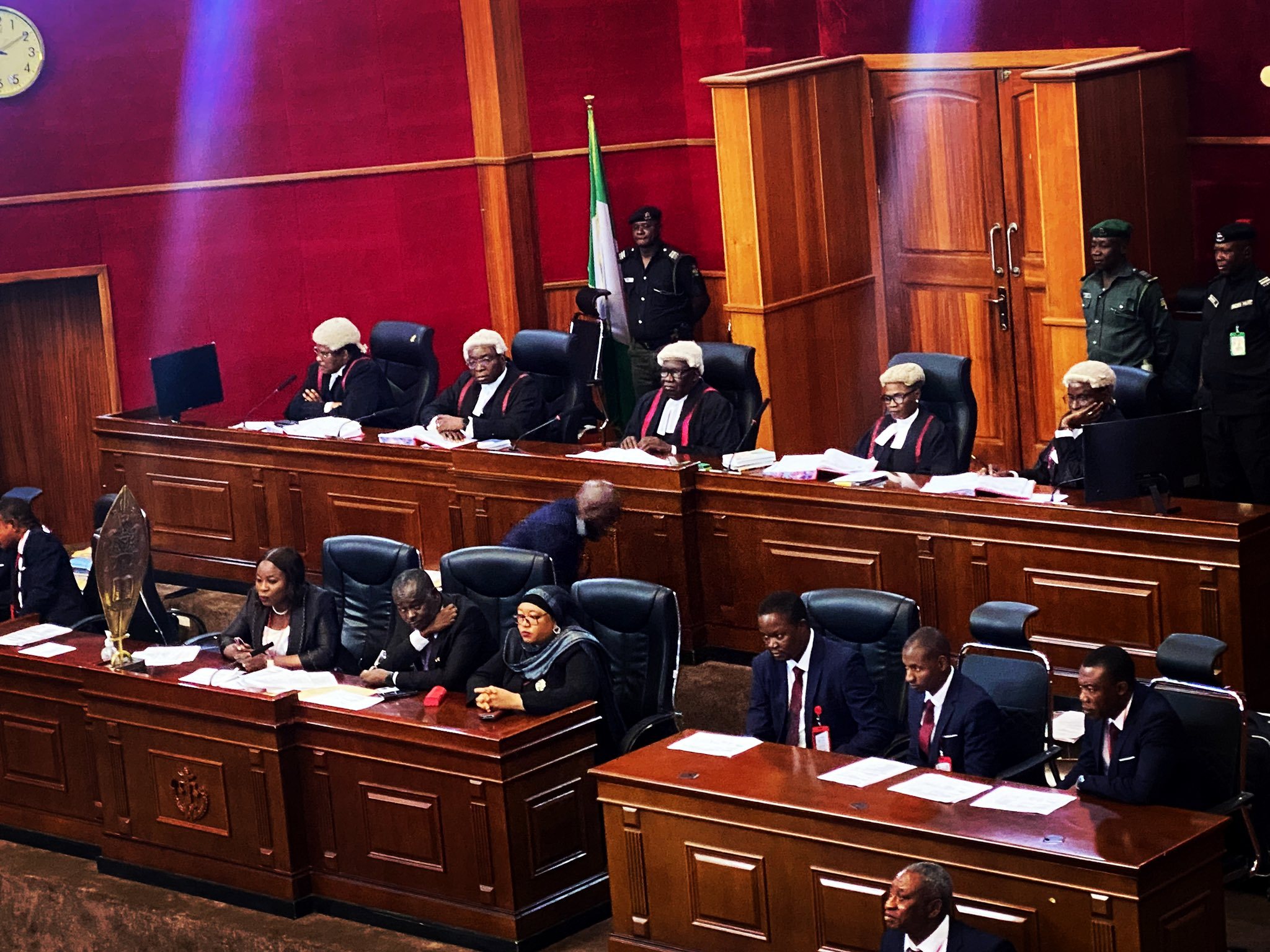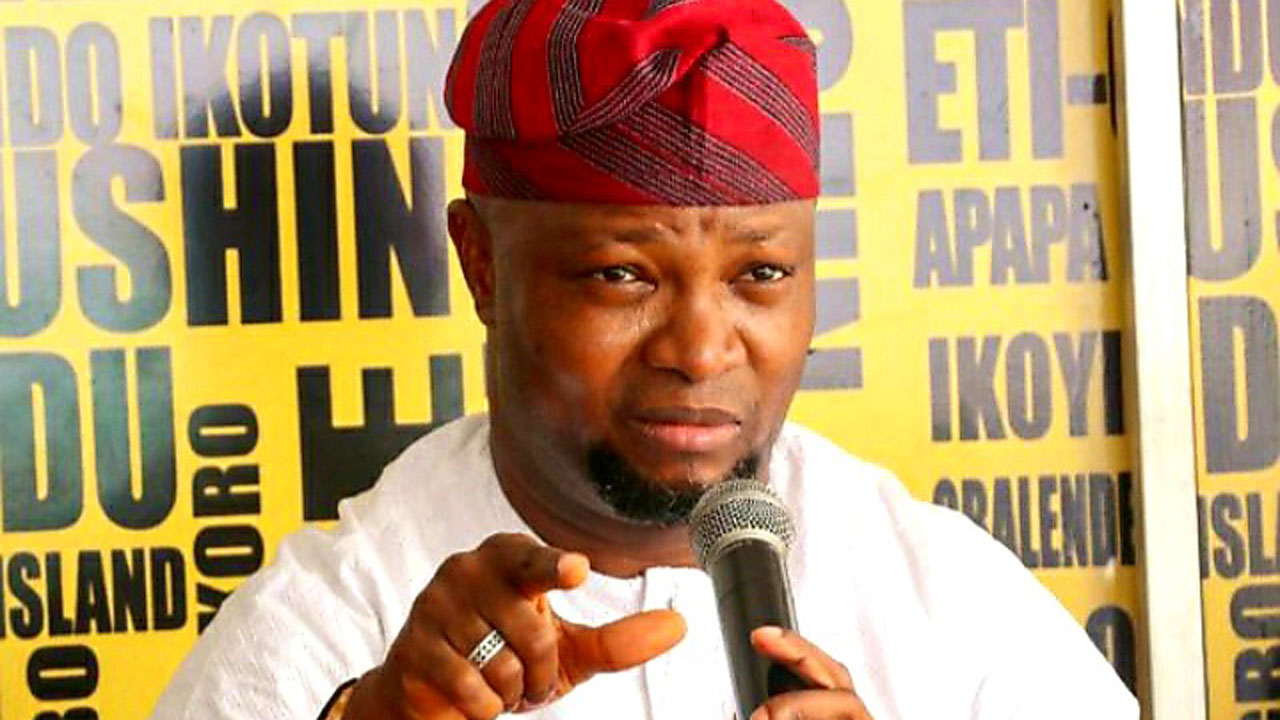
Yesterday, the Presidential Election Petitions Court (PEPC) in Abuja delivered a ruling that dismissed a proposition to permit live television broadcasts of its daily legal proceedings. The hearings relate to the petitions filed with the intention of nullifying the results of the Presidential election that took place on the 25th of February, 2023.
The presiding judge, Justice Haruna Tsammani, led a panel consisting of five members in making this decision. The application had been introduced by Alhaji Atiku Abubakar from the Peoples Democratic Party (PDP), and Mr Peter Obi from the Labour Party (LP). The court rejected the plea, determining it lacked substantive merit.
The justices upheld the stance that there was an absence of an established regulatory framework or policy guidelines that would authorize the court to comply with such a request. They stated that the endorsement of cameras within the courtroom constituted a substantial judicial policy, and this policy had to be legally supported.
Justice Tsammani stated, “Our operation is guided and governed by the practice directives and procedural regulations sanctioned by the President of the Court of Appeal. It is not in our interest to permit any circumstance that might transform our proceedings into a spectacle.”
Furthermore, the court asserted that the request did not align with any relief previously stated in the petitions it was deliberating upon. The court regarded the request as a sentimental claim, rooted in the belief that it would provide a benefit to the electorate. The court stated that the petitioners did not successfully validate how live television coverage of the proceedings would substantively contribute to their case. The court further added that such a live broadcast would not enhance the practical value associated with the resolution of the petitions. The justices observed that organizing a live broadcast would necessitate strategic planning and allocation of resources.
While ensuring the involved parties of their commitment to upholding the right to a fair trial as stipulated in the 1999 Constitution (as amended), the court stated that they found no valid argument to approve an application they considered as both “innovative and unprecedented.”
Alhaji Atiku Abubakar, who finished in the second position in the election, was the first to propose the request for live coverage, with Obi later endorsing this suggestion.
Represented by their principal lawyers, Chief Chris Uche (SAN) and Dr. Livy Uzoukwu (SAN), the duo contended that the petitions they had lodged against the declaration of the candidate of the All Progressives Congress (APC), Asiwaju Bola Tinubu, as the winner of the election were of monumental national importance and aroused significant public interest.
Their argument was predicated on the belief that this case involved the welfare of citizens and the electorate across all 36 states of the Federation and the Federal Capital Territory, Abuja. All of these individuals, they claimed, had participated in the Presidential election.
Atiku and the PDP underscored that their case against Tinubu was an exceptional electoral disagreement, bearing a distinctive constitutional aspect. They sought “an order, directing the Court’s Registry and the parties on modalities for the admission of media practitioners and their equipment into the courtroom.”
The duo affirmed that, given the significant technological progress in Nigeria and globally, coupled with the current inclination of the court towards electronic procedures, virtual hearings, and electronic filing, a deviation from the standard rules to facilitate a regulated televising of the proceedings was in agreement with the principle that justice should not only be done but must also be seen to be done.
They insisted that televising court proceedings was not an unusual practice for the court and it would bolster public confidence.
However, Tinubu, APC, and INEC, in separate processes filed before the court, sought the dismissal of this application, labeling it as frivolous and unmeritorious.
Tinubu rebuked both Atiku and Obi for what he viewed as an attempt to belittle the judiciary by trying to transform the court proceedings into a political stage or a cinematic event. The APC, through its lawyer, Prince Lateef Fagbemi (SAN), argued that live televising of election tribunal proceedings would instigate unnecessary tension, violence, and public unrest, potentially resulting in a breach of peace.
In a counter-affidavit filed together with Vice President-elect, Kashim Shettima, Tinubu accused Atiku of intentionally aiming to subject the judiciary to public disapproval. It was further contended that live broadcasts “will expose the proceedings of the court to unnecessary sensationalism and unwarranted social media trial, which detracts from the core issues of the serious business before the court.” INEC also expressed opposition to live broadcasts of the proceedings.
Similarly, Tinubu and the APC rejected the proposition to merge the three petitions aiming to annul the results of the election. Tinubu and the APC, respondents in all the cases, insisted that the consolidation of all the petitions would negatively impact their ability to effectively defend against the issues raised by the petitioners regarding their victory. Consequently, they implored the PEPC to separately hear and determine the three petitions.
















